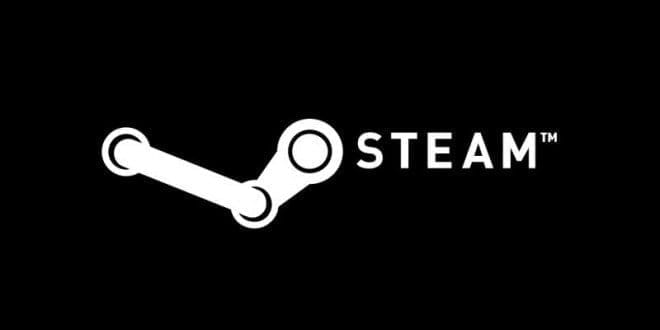My esteemed colleague Robert N. Adams discussed that he found this Winter Sale "disappointing" and, well, that's his opinion. The wonderful thing is opinions are something we all have, and I have to say in general I disagree. There is an issue with the Steam sale, but it's not the lack of Flash Sales or minigames.
Flash Sales were all about creating false scarcity, as on the digital side of goods there is never the impetus of "limited supplies." Retailers like Steam have an unlimited quantity of supply, and thus they have turned traditionally to things like Flash Sales to create that type of traffic that brick and mortar retailers can get by saying "while supplies last, these days only!" The goal is to keep people coming back and back and it actually hurts the general customer experience by requiring things like the Steam sales chart, which was all about metagaming the Steam sale. He discusses that the flowchart was something he followed "religiously," and for savvy users it was a very useful guide.
Here's the thing though: for most people they didn't know it. The setup created bad experiences for those who couldn't check their computer every few hours, every day for several weeks. It was, while a production and an event, inherently worse for the consumer because of the extra pressure decreasing the time to make better buying decisions, the lack of knowledge on future deals, and it was reliant upon being able to be on the program every few hours each day to maximize the deals.
As for my colleague's comment about refunds going to the wallet in the case of flash or daily sales, there are severe issues with that. Robert's suggestion is that it automatically should have a sort of chargeback to users if it goes on a lower sale in the Steam sale period. There are some issues with this surrounding it from both a consumer and a developer side that need to be considered. First for consumers, is that the refund would be in Steam Wallet funds only, not the money you'd get if you refunded and then repurchased it, meaning that the money is trapped in Steam's ecosystem. Second of all, it's a headache for customers and Valve on what to do if that person wants to refund the entire purchase, whether that is because of disappointment, unplayability, or whatever other reason there is such as being a heavily color coordinated game that you got while being color blind. If they allow a partial refund of the difference, then there is the fact that the refund is partially in store credit and part in money so it's not really a proper refund and may lead to some legal troubles for Valve, who's refund policy is still under scrutiny in nations like Australia. If they allow a full refund, it creates a really complicated set up, though how bad that would be, would be dependent on what the refund rate for games on sale is.
However, the bigger issues there to some extent deal with the way this would impact developers and the system. This type of set up wouldn't make the "flash sale" a short term thing that the developer could swallow—4, 8, or 24 hours of low prices for higher sales and more visibility, but would impact previous sales seeing a drop there. That makes it tougher for the developers to have a reliable idea on how much is coming in and budget, something that is important for independent developers often. It would mean a minimization or removal of differences for many of them for those deals as they couldn't afford to have a full week of sales at that price. It would, by it's very nature, emphasize a rich get richer set up because bigger companies can swallow that pill for the front page exposure, and by bigger I don't mean just big publishers, but companies like Double Fine potentially. Compared to a small indie, the AA teams like Double Fine, Obsidian, InXile, and Larian are large fish indeed. This is of course assuming the Steam contracts on refunds are equitable to developers, and we don't know how those are set up, which would make me very hesitant to suggest using it in some sort of automated process like this.
It seems that my colleague feels like he is missing an event, but instead of looking at it negatively he should consider the other ramifications both on himself and the market. He says he is thinking about his purchases more, good! That's something that we all need to do, and it is the advantage of the system that is now in place that you have the time to do that. Another thing to consider is the health of the PC gaming market in general, which has a concerning trend of doing large discounts to games only a few months after launch. It isn't a sustainable market that has games 50% off 3 months after release. When you consider many of these games retail between $10 and $20, that means the amount going towards supporting the developer drops significantly, especially once you take out Valve's cut. Bundling, especially on non-Humble Bundle sites, is a further issue if games do it too quickly, and it is part of a worrisome trend we have to watch to make sure the PC market doesn't just become a race to the bottom like the Apple App Store. No one wants that to happen.
With all that said in defense of the current Steam sale model, there is a major issue with it. You've probably forgotten the title by now, given my rambling, but I am talking about discoverability. There have been generally throughout this sale over 10k games on sale. The average user knows only a small portion of them, and the same games keep showing up on the Steam front page each sale and are focused on. However, with 10k titles it's nearly impossible for a user to be able to find out about many of the titles that are on sale, and independent titles have an issue getting the spotlight they deserve.
There is one good thing that Valve has done to try and help that this time around, and that is tying the Winter Sale Trading Cards to the discovery queue. The queue is very good at showing people a wide variety of games, and it will be interesting to see statistics on how many users bought games they stumbled on from their queue during the Winter Sale. However, there is only a portion of games that will get seen through that even if someone does their queue for all the trading cards (3 each day, 1 per queue run)—that shows only a maximum of 504 games. The most they'll see that way is 5% of the titles on sale, and it will also show non-sale games.
So, what can we do to improve discoverability for this in the future?
First of all, let's improve the Steam Curator system some and make that a more useful tool. The Curator system hasn't seen any updates since it was launched and it could, in theory, be a useful tool for people to create highlights maybe for sales on Steam via their Curator page. Perhaps each Curator could nominate a few games on sale and that would get a special place for "recommended by curators you follow" this sale.
Second, the way they are focusing on games needs some revamping. Right now there's a mish-mash and no real pattern to it. You want to probably bring some sort of theme to each day and make it interesting to find out what they will feature there. Some can be genres, maybe mechanics, maybe just ideas. There's a lot of things you can do to get a variety of different games on the front page region.
Third, on the front page, remove titles people already own and replace with back ups. That's something I know personally has irritated me is seeing all these sales on games I own, and it's part of why I think many people feel disappointed—they just see games they already own on sale.
Last, but far from least, give the Wishlist some care on upgrading. It should be easier to remove titles from the wishlist, or create sublists of sorts. This type of mass sale means the Wishlist is more important then ever, and so to carry that it needs more features to hold up under the weight.
Two last thoughts to people finding this sale disappointing, take a second and think about it. Is the sale disappointing or do you just already own the titles you normally would have been excited for? Are you really wanting to encourage companies to use psychological manipulation to make the sale "more interesting"?
Well, you can decide.
Have a tip, or want to point out something we missed? Leave a Comment or e-mail us at tips@techraptor.net













